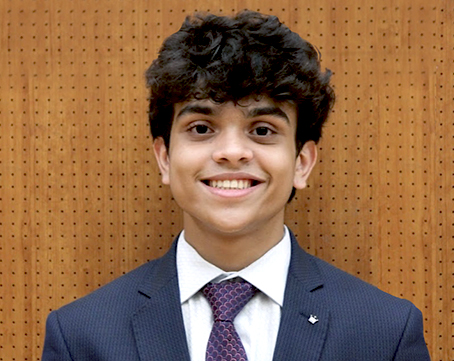
Deputy Secretary-General : Rishi Sankhe
“In our biggest shared test since the Second World War, humanity faces a stark and urgent choice: a breakdown or a breakthrough.”
- Antonio Guterres
Dear delegates and MUN directors,
Throughout history, numerous instances have underscored the quintessential role of multilateralism in achieving global synergy. Yet today, the international community finds itself at the cusp of disintegration due to political tensions running high between multiple nations and the rife global thirst for attaining unilateral dominance.
Bystanders observe how the pervasive nature of hegemonism continues to manifest in a multipolar world and the brutal reality wherein the international community’s optimal goal of achieving global synergy continues to inch further away.
In its essence, multilateral integration refers to the intent of fostering closer ties and interdependence among the participating nations, thus ultimately resulting in increased cooperation and the pursuit of shared goals. The Hanseatic League, a commercial and defensive confederation of merchant guilds and market towns, promoting economic integration and cultural exchange during the Middle Ages. The Delian League, a Greek alliance formed in 478 BCE after the Persian Wars. The Modern-day Association of Southeast Asian Nations (ASEAN) and the Organisation of American States (OAS) formed to promote regional solidarity and collaboration. All these historic examples epitomize how civilisations have always flourished upon adopting multilateralism as an essential ideology towards attaining unity. Despite this, the Goliaths of our community relentlessly attempt to establish their dominance and superiority by using brute force in political and military matters, thus solidifying their status as a hegemonic power that needs to be regulated.
Guterres’ view of humanity being presented with two choices may seem baseless and superficial to the non-specialist's eye, however, the unfortunate truth resides within the fact that most nations continue to choose a “breakdown” over a “breakthrough” for personal gain while not even remotely considering the repercussions of doing the same. History has experienced countless examples of political greed being prioritized over global collaboration in the goal of achieving peace. Take Russia - Ukraine, for example; Russia’s unfaltering ambition of annexing Crimea since 2014 in response to the ensuing tumult of Euromaidan (a movement which comprised of countrywide protests in retaliation to Ukraine’s corrupt and incompetent government) ultimately culminated in a war which has yielded nothing but mass destruction and genocide of Ukrainians, and the devastating part is that despite causing so much damage, the Russian Government shows no signs of stopping. It is this destruction and turmoil that calls for the members of the international community to join forces and prevent any further deterioration of world order. Delegates, this leaves a clear path for each and every one of you all: challenge the world order and implement radical change, or simply abide by a long-standing hierarchy.
DAIMUN offers each one of you a platform to voice your opinions and formulate unique solutions towards restoring world order and achieving synergy through the effective employment of multilateralism. Today, you stand at the precipice of change, and it is your responsibility to determine the world’s destiny.
Welcome to DAIMUN 2023, a place where the fabric of diplomacy is woven into the tapestry of the conference.
Warm Regards,
Rishi Sankhe
Deputy Secretary General
DAIMUN 2023